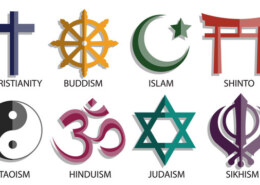What makes me curious about this is how people define “truth” through their own spiritual or philosophical lenses. For some, it’s rooted in scripture; for others, it’s shaped by experience, logic, or tradition. I’m interested in how people hold their convictions while still being open to dialogue.
Personally, I’m not looking to debate or convince — I’m more drawn to understanding “how” people arrive at what they believe, and “why” they hold onto it. I think those deeper stories and thought processes reveal a lot about what drives human faith, doubt, and meaning.
I’d love to explore this with others in a way that’s honest and respectful — not about winning arguments, but about learning what truth looks like through someone else’s eyes. I think it’s something we can navigate together with curiosity and care.


To seek the truth in my faith is to be the best version of ourselves.
In my faith, to seek the truth is to be the best version of yourself.
In Islam, seeking the truth is a lifelong journey guided by sincerity, humility, and a genuine desire to please God. We are encouraged to question, reflect, and study with open hearts and minds. The Quran itself invites us to think deeply and seek knowledge.
When speaking to people of different beliefs, I approach the conversation with respect and a willingness to listen. Islam teaches us to engage in dialogue with wisdom and beautiful manners, not to argue but to share and understand. I believe truth withstands questioning, and respectful discussion is one of the best ways to reach mutual understanding.
truth in Islam is absolute, sourced from the Qur’an, Hadith, and ijma (consensus of scholars). These three sources must be a guide for a Muslim to determine the truth in various aspects of life.
However, a Muslim is also ordered not to be arrogant and must not force his beliefs on followers of other religions. A Muslim is only required to convey the truth, not to force the truth.
Therefore, we must continue to respect the beliefs of others and must continue to do good to all humans.